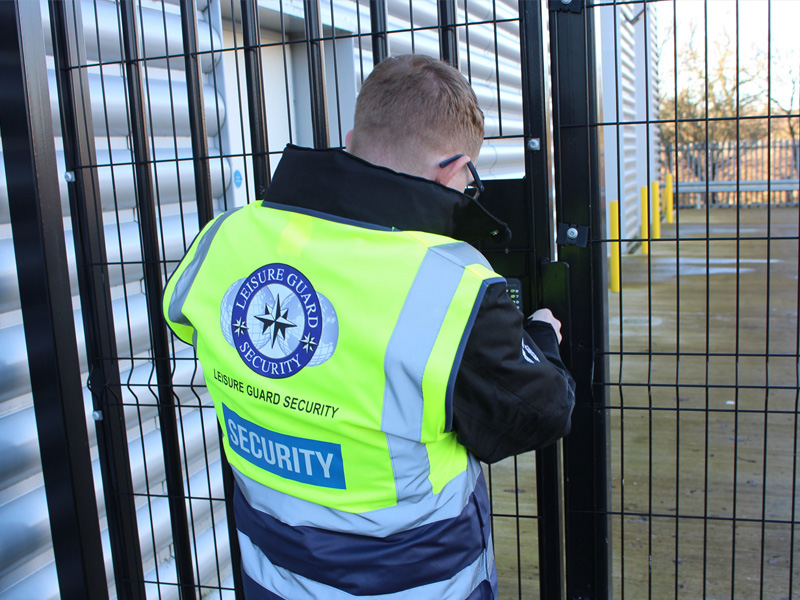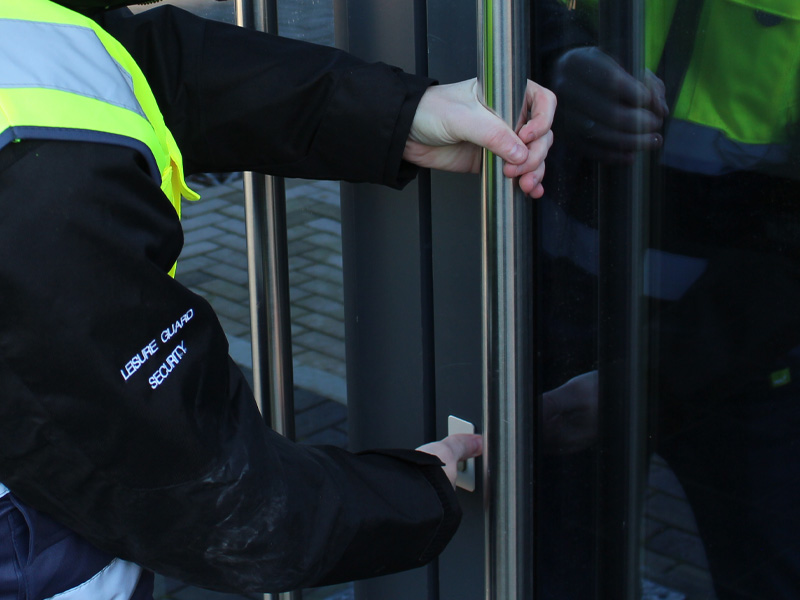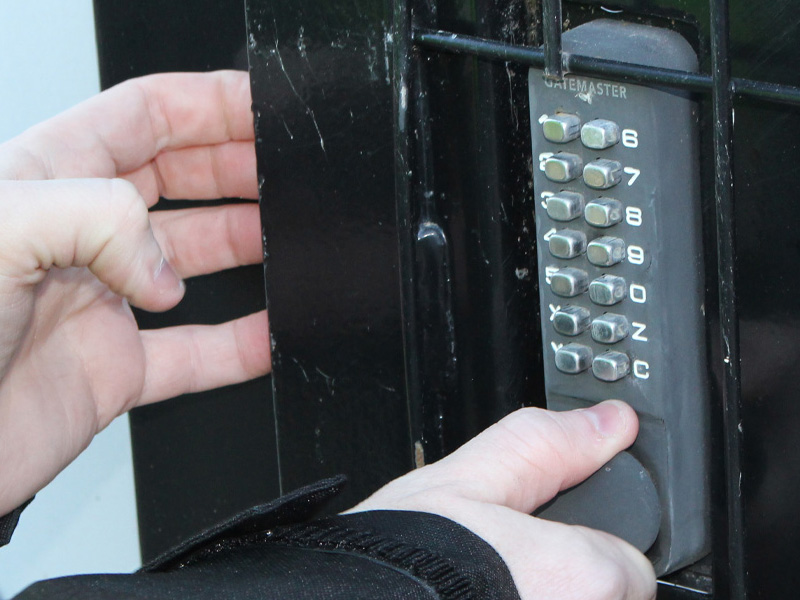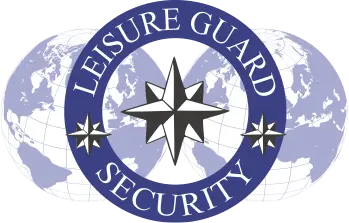As one of Greater Manchester’s key boroughs, Tameside is home to a diverse mix of property types, from traditional terraced homes and housing association stock to retail units, industrial warehouses, and office spaces. It’s also an area undergoing major regeneration and investment, with shifting property usage patterns and increasing periods of vacancy between tenants, refurbishments, or sales.
But as properties stand empty, whether for weeks, months, or longer, they become targets.
Not just for crime, but for oversight.
Not just for decay, but for denied insurance claims.
The Hidden Threat of Vacancy
Most landlords are aware of the visible risks:
- Vandalism
- Break-ins
- Squatters
- Theft of materials
- Anti-social behaviour
But the real danger is silent and buried in the fine print of your insurance policy.
One missed inspection can void your cover.
One unchecked leak can become a £15,000 claim, denied because no one was there to spot it.
Why This Matters in 2025
In 2025, insurers are tightening their requirements. With increased claims and rising repair costs, they now demand:
- Regular inspections (typically every 7 to 14 days)
- Detailed reporting with time-stamped photos
- Prompt remedial action when issues are found
These aren’t suggestions, they’re policy conditions. And in a borough like Tameside, where property changeovers are frequent and localised crime hotspots exist, the risk of failing to comply is higher than ever.
The Cost of Getting It Wrong
We’ve seen it first-hand in Tameside:
- A business owner in Denton had a claim rejected after squatters caused thousands in damage, because no inspections had been logged.
- A housing provider in Hyde faced council enforcement notices after repeated fly tipping behind a vacant block.
- A private landlord in Ashton-under-Lyne lost a five-figure payout after an internal leak went undetected for 3 weeks.
Each of these situations could have been prevented, or at least covered, if a professional vacant property inspection schedule had been in place.
The message is clear:
If you own or manage an empty property in Tameside, routine vacant property inspections aren’t just a good idea, they’re essential.
They protect your investment, your reputation, and your insurance cover.
And they can be set up in as little as 48 hours.
Understanding the Risks in Tameside
Tameside sits on the edge of Greater Manchester, an area with a high concentration of industrial estates, retail units, and housing stock in transition. As regeneration and development projects shift focus across the borough, the number of temporarily or long-term vacant properties has steadily increased.
With vacancy comes vulnerability.
Whether it’s a former high street unit in Ashton-under-Lyne, an empty semi-detached in Hyde, or a disused warehouse on an industrial estate in Denton, these properties face very real threats that can escalate quickly without intervention.
Let’s look at the six most common incidents affecting vacant properties in Tameside:
- Water Ingress and Structural Damage
In over 30% of our callouts in Tameside, unattended leaks have led to:
- Flooded basements and floors
- Damaged plaster and electrics
- Mould contamination
- Structural weakening
The average cost of a water ingress repair is £15,000, and insurers often reject claims if inspections haven’t been conducted regularly or if damage appears long-standing.
- Metal Theft
Empty properties are a magnet for thieves looking to strip:
- Copper wiring
- Lead flashing
- Plumbing and pipework
These crimes are often carried out at night and may not be discovered for weeks. Repairs can cost anywhere from £5,000 to £10,000, and they often leave properties exposed to further water damage or fire risks.
- Squatting and Unauthorised Occupation
Vacant homes and buildings, especially those without visible patrols, can be occupied within days. Reclaiming possession involves:
- Legal action and court orders
- Bailiffs and clearance teams
- Repairs for vandalism, drug use, or biohazard cleaning
Costs can quickly exceed £5,000, not including lost rental income. Prevention is significantly cheaper than eviction.
- Fly Tipping and Graffiti
These nuisance issues are common in Tameside, particularly in:
- Rear alleyways behind terraces
- Unsecured commercial forecourts
- Derelict industrial yards
Not only do they attract more anti-social behaviour, but councils may issue enforcement notices to the property owner. This leads to cleanup costs ranging from £500 to £1,200, with potential fines on top.
- Arson and Deliberate Damage
Abandoned properties are a known target for deliberate fire-setting, especially during holidays and school breaks. In the last 12 months, Greater Manchester Fire and Rescue Service reported multiple arson-related incidents in the Tameside area alone.
Even a small fire can cause extensive damage, invalidate insurance claims, and lead to legal repercussions if the property wasn’t secured or inspected adequately.
This is the most financially devastating outcome.
Even with a policy in place, insurers are increasingly rejecting claims when:
- No evidence of regular inspections is provided
- The property hasn’t been properly secured
- Reports show the damage existed for an extended period
In Tameside, we’ve seen landlords lose £20,000+ because a single required inspection was missed.
| Incident Type | Typical Cost Without VPI | Risk Level |
|---|---|---|
| Water ingress | £15,000 | High |
| Metal theft | £8,500 | Moderate |
| Squatter eviction | £2,000 – £5,000 | Moderate |
| Graffiti/fly tipping | £500 – £1,200 | High |
| Arson or fire damage | £10,000 – £50,000+ | Severe |
| Insurance claim denial | £10,000 – £30,000+ | Severe |
The takeaway?
In a borough like Tameside where economic change is creating new property gaps, vacant property inspections are not just a formality. They’re a critical layer of protection for your investment, one that insurers now expect as standard.

What Insurers Expect (But Don’t Always Tell You)
Most landlords believe they’re covered.
They’ve paid their policy, locked up the premises, and maybe even installed CCTV.
But when something goes wrong , a leak, a fire, a theft, and they contact their insurer, that’s when the real shock hits:
“We’re sorry, but your claim has been rejected due to a breach of policy conditions.”
This isn’t rare. It’s becoming the norm.
The Clauses Buried in the Fine Print
Over the last five years, insurers have quietly introduced far stricter conditions for vacant properties, both residential and commercial. These typically include:
- 🔁 Routine inspections every 7 or 14 days
- 📸 Photo evidence of all internal and external checks
- ⏱ Time- and date-stamped reports
- 🛠 Prompt action on issues like open windows, water damage, fly tipping, or vandalism
- 🔐 Proof the site was secured between visits (e.g. doors, alarms, locks checked)
Fail to meet just one of these conditions, even for a single inspection cycle, and your entire policy could become null and void.
What “Inspection” Actually Means
It’s important to note that insurers don’t just want a quick walk-around. They expect a structured and documented process, typically including:
- Inspection of all accessible external and internal areas
- Check for signs of break-in, water ingress, or fire hazards
- Notes on changes in condition, such as graffiti or damage
- Confirmation of working alarms, secure locks, and meter readings if applicable
- A written record with digital proof (photos, GPS logs, timestamps)
This is where many landlords fall short.
Even if you’ve visited the property, without documented evidence, your visit may carry no weight in a claim’s investigation.
What They Won’t Tell You Until It’s Too Late
Most insurers won’t proactively warn you if your inspection compliance is slipping.
They’ll collect your premiums, and only when you submit a claim will they begin investigating:
- “When was the last inspection?”
- “Can you provide photographic evidence?”
- “Was the property still secured on the last visit?”
At that point, if you can’t prove due diligence, the claim can be lawfully declined.
The Shift in Attitude From Insurers
Increased claims due to floods, arson, and theft, particularly post-pandemic ,have made insurers far less lenient.
And with AI-assisted claims processing now analysing metadata in photos, dates, and even GPS locations, guesswork and vague notes won’t cut it anymore.
You need professional inspections that generate audit-proof reports.
The Good News?
When you work with a provider like Leisure Guard Security, we deliver exactly what your insurer expects, and more:
- ✅ Fastfields digital reports with geo-tagged evidence
- ✅ Time-stamped logs and inspection trails
- ✅ Immediate alerts for any site issues
- ✅ Secure cloud archiving of reports for claim submissions
Our reports are already being used by commercial landlords, councils, housing associations, and asset managers to support and win insurance claims.
In Tameside, where risk is increasing and enforcement is tightening, this level of diligence isn’t a luxury, it’s the bare minimum required to protect your investment.
professional Vacant Prtoperty Insoections in Tameside
Stay compliant, avoid costly surprises, and protect your property from just £30 + VAT.
Get started with a free consultation today.
What a VPI in Tameside Includes
At first glance, a vacant property inspection might seem simple: check the doors, have a quick look around, and leave. But in today’s insurance landscape, that’s nowhere near enough.
To be effective, and compliant, a VPI must be systematic, verifiable, and evidence-based.
At Leisure Guard Security, our Tameside VPI service is designed not only to meet insurer requirements, but to go far beyond them, protecting your property, your reputation, and your bottom line.
Here’s what’s included in every inspection we carry out across Tameside:
✅ 1. SIA-Licensed Security Officers
Our inspections are conducted by trained, vetted, and licensed professionals who understand security protocols, local threats, and insurer compliance.
- Officers are uniformed and equipped with ID
- Trained in conflict resolution, first aid, and lone working
- Experienced in spotting signs of unauthorised entry, damage, or tampering
✅ 2. Digital Reports via Fastfields
Each inspection generates a timestamped digital report using our proprietary Fastfields system, including:
- Internal and external photos
- GPS data confirming presence on site
- Checklists tailored to your insurer’s requirements
- Comments on any concerns or issues found
- Digital signature of the attending officer
These reports are stored securely in the cloud and sent directly to your inbox, creating a defensible audit trail.
✅ 3. Body-Worn Camera Evidence
Every officer wears a body camera that records interactions and on-site observations.
This provides:
- Clear video evidence for insurers or legal purposes
- Proof of diligence and professional conduct
- Visual documentation of property condition
✅ 4. Emergency Alerts and Rapid Response
If our officers discover a serious issue, like an open door, forced entry, fire risk, or flood, we act immediately:
- You’re contacted directly
- Our response team can remain on site
- Emergency services are contacted if necessary
- Repairs or re-securing can be arranged via your contractors or ours
Every minute matters in a vacant property emergency, and our system is designed to reduce response times.
✅ 5. Tailored Inspection Schedules
We work with you to match your inspection frequency to your:
- Insurance policy requirements
- Property type (residential, commercial, industrial)
- Risk profile
- Location (e.g. higher frequency in known hotspots)
Whether your policy demands weekly, fortnightly, or bespoke checks, we deliver to spec.
✅ 6. Environmental Considerations
As part of our commitment to sustainability, our Tameside patrols:
- Use electric or low-emission vehicles where possible
- Follow efficient route planning to reduce carbon impact
- Avoid paper-based reporting unless specifically requested
✅ 7. Local Knowledge, Local Teams
Our officers are based in and around Tameside, with routes covering:
- Ashton-under-Lyne
- Hyde
- Denton
- Droylsden
- Mossley
- Stalybridge
- Dukinfield
- And surrounding industrial and rural zones
This local knowledge helps us identify unusual activity, track repeat incidents, and respond faster.
Optional Add-Ons:
- 🔐 Lock and unlock services
- 🧯 Fire safety inspections
- 🧹 Clean-up and fly-tipping clearance
- 📦 Meter readings and utility checks
- 🛠 Liaison with maintenance contractors
Whether you manage one property or a portfolio, we build our service to fit you.
In short:
A Leisure Guard VPI is not just a visual check. It’s a fully documented, insurance-ready, incident-preventing, claim-protecting system, delivered by a professional team you can trust.
Case Study Snapshot
Sometimes the best way to understand the value of vacant property inspections is to see them in action, especially in a local context.
Here’s a recent example from Ashton-under-Lyne that shows how quickly small issues can escalate, and how a professional inspection service can prevent thousands in damage and claim loss.
🏢 The Property
A commercial unit in Ashton-under-Lyne, formerly a print and signage shop, had been empty for 9 weeks while the landlord sought a new tenant.
The property was insured, locked, and alarmed.
However, the insurer required weekly inspections with photographic evidence, a detail the landlord hadn’t previously considered.
🚨 The Incident
During one of our routine inspections, our officer:
- Detected a damp smell near the rear fire exit
- Investigated further to find a slow leak from a dislodged pipe joint under a sink
- Captured photos of the affected wall and flooring
- Logged the issue in the digital report with GPS/time stamp
- Alerted the landlord immediately
A local plumber was dispatched the same day, and the issue was resolved for £180.
📉 The Outcome
The landlord later told us that had the leak gone unnoticed for another 1–2 weeks, it would have:
- Caused the wooden subfloor to rot
- Damaged the electrics
- Required full flooring replacement
- Delayed letting to the next tenant by over a month
Estimated cost avoided: £12,000+
“I’d never realised my policy required proof of inspections. Leisure Guard not only gave me that peace of mind, but they also quite literally saved the property. I now insist on VPIs for all three of my empty sites.”
Mr. B, Commercial Landlord, Ashton-under-Lyne
🔒 Insurance Confidence
Not only was the damage prevented, but because we provided:
- A timestamped report
- Photographic evidence
- A signed inspection log
The landlord’s policy remained fully intact, with no excess increases or disputes with the insurer.
💡 The Lesson
Most issues in vacant properties don’t happen overnight.
They build quietly over time, until they become catastrophic and uninsurable.
Regular, professional inspections like ours catch these issues while they’re small, manageable, and inexpensive.
A keyholding company you can trust
Stay compliant, avoid costly surprises, and protect your property from just £1 per key per day + VAT.
Get started with a free consultation today.
Frequently Asked Questions About Vacant Property Inspections (VPIs)
What is a Vacant Property Inspection (VPI)?
A VPI is a professional service where a trained officer regularly inspects your vacant property to ensure it’s secure, safe, and compliant with your insurance requirements. It includes detailed reports, photos, and immediate alerts for any issues.
Do I really need VPIs if I already have insurance?
Yes — most property insurance policies require regular inspections for vacant buildings. Without documented proof, your insurer may reject your claim if damage or theft occurs.
How often should vacant properties be inspected?
Typically every 7 or 14 days, depending on your insurer’s terms. We tailor your inspection frequency to match your policy requirements to ensure full compliance.
Can I carry out the inspections myself?
You can, but most insurers require detailed and time-stamped documentation. Leisure Guard provides GPS-verified reports, photos, and professional logs that stand up in court or during claim disputes.
What happens during an inspection?
Our SIA-trained officers inspect all accessible areas (external and internal), check for signs of intrusion, damage, leaks, fly tipping, or fire risk, and submit a report with supporting evidence.
What areas in Tameside do you cover?
We cover all of Tameside, including Ashton-under-Lyne, Hyde, Denton, Droylsden, Mossley, Stalybridge, Dukinfield, and surrounding commercial and residential zones.
What kind of properties do you inspect?
We provide inspections for:
Commercial properties
Retail units
Industrial sites
Vacant residential homes
Development plots
Council and housing association stock
What proof do I get that an inspection has taken place?
You receive a digital report with:
Photos
Timestamps
GPS data
Officer notes
Bodycam footage (where applicable)
These are emailed to you and stored in our secure cloud system for future reference.
What if an issue is found during an inspection?
We alert you immediately and take appropriate action:
Notify emergency services (if required)
Secure the site
Remain on-site until resolved
Coordinate with your contractors or provide our own
How quickly can you start?
We can usually begin within 24–48 hours of a risk assessment.
Will these inspections help with my insurance renewal?
Yes. Providing documented proof of compliance with your policy conditions can reduce your risk profile, support claims, and often lead to fewer exclusions or premium hikes.
How much do vacant property inspections cost?
Prices start from as little as £90/month, depending on frequency, location, and property type. This is a small investment compared to potential losses from damage or a denied claim.



